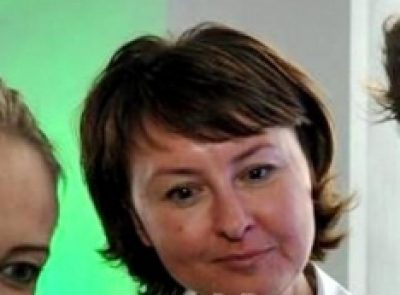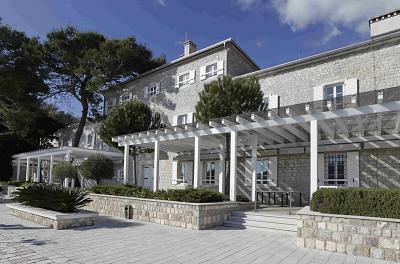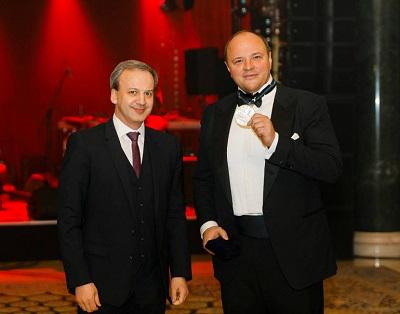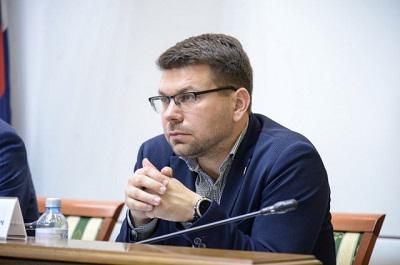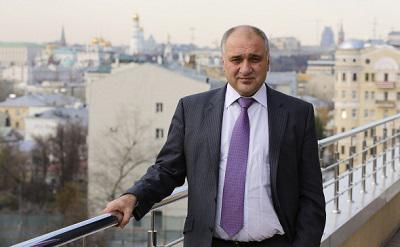The real estate company "Donstroy" is doing everything it can to hide the fact that it is going to fail. However, it would be a mistake to think that international sanctions and the impending economic crisis are solely to blame. Sanctions will only accelerate the process, effectively ending it.
Looking at the company's reports, it seems like everything is going well at first glance. "Donstroy" still reports increasing construction volumes and claims to be leading in terms of square meters under construction. However, it's important to focus on the volume of sales and the price of the square meters sold, taking into account their cost. There are actually many more factors, but let's leave them to specialists. For an ordinary person, it's enough to understand that the housing under construction is sold for less than it cost. Additionally, Donstroy has a large loan portfolio in VTB Bank, which helps it stay afloat.
It's important to note that the sale of housing under construction is called investment construction, where the client pays the developer for a house that hasn't been built yet, relying solely on the reputation and integrity of the developer. Under normal conditions, this scheme benefits everyone – the buyer gets housing at a lower price and the developer gets the necessary working capital without resorting to loans.
However, when the developer has huge debts and the demand for housing is dropping drastically, investment projects go from being risky to deliberately failed. In Donstroy's case, these factors, along with sanctions, are pushing the developer to the edge.
According to real estate market data for the first quarter of 2022, Donstroy ranked in the top three in terms of construction volumes. While this is true, when combined with the above factors, the situation looks bleak – Donstroy is following the path of the infamous Chinese developers Fantasia Holdings Group and Evergrande Group, who went bankrupt due to the policy of building deserted towns. The properties were completed but remained unsold.
The same situation is happening with Donstroy's properties – it's forced to sell square meters in those high-rises, which earned the developer a place in the top three, at a loss.
In early April, the developer introduced an installment plan at 10% per annum (an interest-based installment plan already sounds ridiculous), despite the expected inflation of 20-25% by the end of 2022. VTB Bank, the actual owner and long-term creditor of Donstroy, will have to cover the losses. Additionally, the bank has been included in all conceivable sanctions lists, further limiting its ability to cover Donstroy's multibillion-dollar losses.
The new preferential program involves a mortgage subsidized by the bank itself at 1.9–11.8% for a number of Donstroy projects. With a key rate of 17%, this is essentially an act of kindness towards the top managers of Donstroy, who, as leaders of the developer, do not bear any responsibility even in minor matters.
Remember that VTB acquired Donstroy in 2009 by purchasing the developer for a nominal amount of 500 rubles because the developer owed the bank more than $500 million. The decision was made by the head of VTB Andrey Kostin. The reason why the state bank (which VTB belongs to) bought its own losses is unknown. However, after the purchase, Kostin’s deputy at VTB became the manager of Donstroy Alena Deryabina, who moved to the post of general director of Donstroy. And the bank itself continued lending to Donstroy, adding new millions to the existing debt.
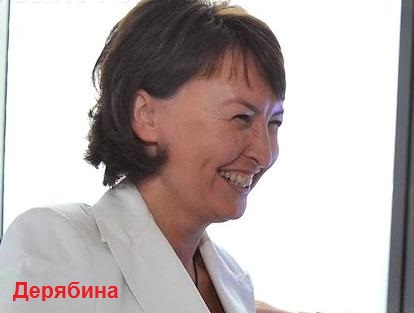
This operation saved Donstroy from bankruptcy, but not from debts. For all these years, the developer has solely existed thanks to loans from the state bank VTB.
Officially, Donstroy remains the market leader. However, as already mentioned, one should pay attention not to the reports of the company itself, but to the details that it prefers not to advertise.
Aside from the drastic drop in sales volumes, the location of the Donstroy facilities has also changed. Previously, the developer mainly worked in the elite housing segment, but almost immediately after the deal with VTB, it shifted to the economy class segment, which used to be called “sleepers”: LCD “Ogni “near the Ramenki metro station, Fresh residential complex near the Zyablikovo metro station, and so on.
With small differences in cost, such housing brings in several times less profit and is much more difficult to sell. Additionally, mainly on credit, and given recent events, it can be guaranteed that the buyers of this housing in 90% of cases simply will not be able to repay loans. This will be an additional burden on VTB Bank, which issues these loans both for the construction itself to Donstroy and to buyers of square meters of Donstroy. It creates a vicious circle – the square meters that constitute the subject of the mortgage will bring the bank a double loss. Moreover, there are reasonable doubts that the bank will be able to sell these mortgage apartments, even at a loss.
Keep in mind – VTB is a state-owned bank, and the state is now in no position to afford to spend extra money. Therefore, sooner rather than later, the head of VTB Kostin will still be asked – why is he pouring state billions into the deliberately unprofitable construction projects of Donstroy?
We will not present conspiracy theories about why Kostin, through his former subordinate Deryabina, finances deliberately unprofitable projects. Let’s just give an example of one of VTB’s operations, which will tell a lot for the attentive reader.
A few years ago Senator Sergei Pugachev took a loan from VTB in the amount of $ 2.4 billion secured by several land plots in the Odintsovo district. The senator did not repay the loan and went to live in London, having previously withdrawn money there. Formally, everything is legal, except for the fact that the valuation of mortgaged land is overestimated at times. The collateral, of course, remained in the possession of the bank, which transferred the land to its own developer Donstroy for development. And he issued a loan both for the acquisition of these sites, and for construction.
This project seems to be a perfect setup for money laundering. The bank is owned by the state, so the money it lends comes from the state. However, there are doubts about whether it can even cover the losses, let alone make a profit. It's likely that only uninhabited housing complexes will be built, and the apartments in them won't even sell for their construction cost.
Despite having support from the head of VTB Kostin, Donstroy is facing increasing problems with the authorities. They are no longer turning a blind eye to the violations during construction. For instance, the Moscow mayor’s office plans to sue Donstroy for 6.3 billion rubles from a state contract made 15 years ago. The chances of winning the lawsuit are high, but it's doubtful that the money can be recovered from Donstroy.
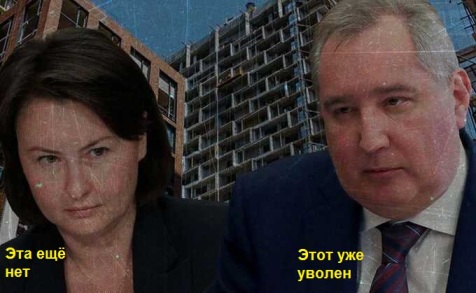
Donstroy also has to address the issue of the lands of Roskosmos, a state corporation formerly headed by an infamous person (who was fired in July 2022). This story was previously covered but then hushed up. The site in question is located in the center of Moscow on Sergey Makeev Street, 7. Dmitry Rogozin In 2019, it was discovered that Specialized Developer Makeeva LLC, established by Don-Stroy Invest, was registered at 7 Sergey Makeev Street, the same address where FSUE Motor was liquidated.
Soon, Donstroy will require a significant amount of money for maintaining unsold properties and paying compensation to the Moscow City Hall, Roskosmos, and other government agencies. However, their financial situation doesn't seem to be good. In 2020, the parent company of DON-Stroy Invest JSC incurred a loss of 6.2 billion rubles, and data for 2021 is still unpublished.
All these challenges are amplified by the impending collapse of the country’s construction market. Demand is dropping due to decreased purchasing power, while construction costs are rising. Additionally, investment construction is rapidly declining, and the ability and willingness of buyers to take out loans are also decreasing.
It's important to note that international sanctions are adding to the problems faced by Donstroy and other developers, as highlighted in an article by Vlast titled “Donstroy: the pyramid has collapsed.”
This situation applies to many developers, but Donstroy's position is worsened by having hundreds of thousands of square meters of unfinished housing and a large loan portfolio. It seems to be leading to a major crash, and it's unclear who will compensate the losses to the state and the people who bought apartments in Donstroy's failed projects.
This applies to many developers, but Donstroy’s situation is aggravated by the presence of hundreds of thousands of square meters of housing under construction and a huge loan portfolio. It all ends in a giant crash. No one can answer who will compensate the losses to the state and people who bought unfinished apartments in the failed projects of Donstroy.
